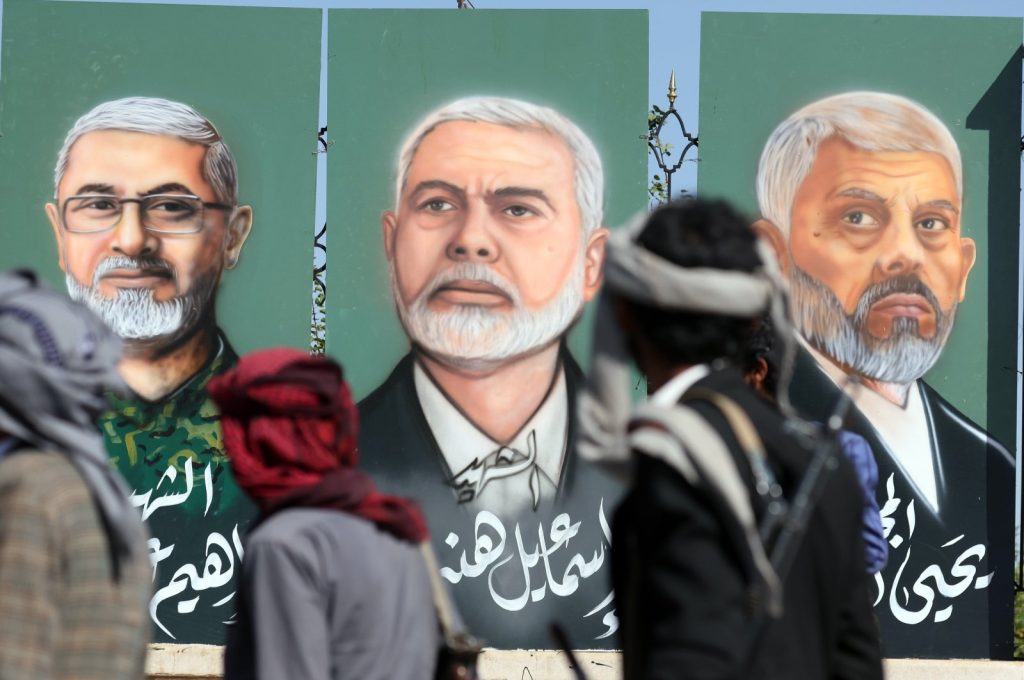The United States has been putting pressure on the Arab states in the Middle East to take adequate measures against anti-Israeli forces, especially Iran and its regional proxies, namely Hezbollah, Ansarullah and Hashd al-Shaabi in Iraq. Similar to its stance in the Ukrainian-Russian war, the U.S. government has been representing the most hawkish position toward the current crisis in the Middle East. While the U.S. government has been providing unconditional military, political, diplomatic and economic support to the Israeli government, it has been discouraging and deterring any country that attempts to take anti-Israeli position. Within this context, it has been putting pressure on the Arab regimes to remain indifferent to the Israeli atrocities against the Arab Palestinian and Lebanese peoples.
Recently, the U.S. government has put more pressure on the Arab states to do more to confront the anti-Israeli forces in the region. For example, Timothy Lenderking, President Joe Biden’s special envoy for Yemen, has called on Egypt, Saudi Arabia and other Arab partners to take measures against the Houthis, an Iranian-backed militant group that has waged an aggressive campaign against the U.S., Israel and commercial vessels transiting the Red Sea over the past year in defense of Palestinians during Israel’s devastating war in the Gaza Strip.
Attacking the Houthis, which are among the few Arab political and military actors that resist the Israeli attacks against the Arab states, may delegitimize Middle East regimes. Therefore, Arab states do not directly contribute to the U.S.-led coalition operations against the Houthis. In other words, as long as the Houthis justify their attacks in the Red Sea amid the conflict in Gaza, the Arab states will refrain from targeting them. On the other hand, the distrust of Arab states toward U.S. policies requires rapprochement between these Arab states and Iran. Naturally, at a time when the Arab states are initiating a rapprochement process with Iran, they cannot attack an Iranian proxy for the sake of Israel.
However, Arab states, including the most pro-American ones, do not trust the U.S. and other Western countries. During this transitory period, no state is immune from multidimensional threats from any country, including the allies. In other words, all countries in the region are quite vulnerable after the latest wave of Israeli aggressive and expansionist steps. With the support of the U.S., Israel has violated principles and norms of international law and committed all kinds of crimes, including genocide. Furthermore, Israel has begun to target the United Nations facilities and buildings both in Palestine and Lebanon. Israel killed many U.N. officials, delegitimized the top U.N. officials and decided to ban the humanitarian activities of the U.N. institutions.
The Arab states have recently witnessed how the U.S. has abandoned its allies in Afghanistan and left the country to the Taliban regime, the main reason for the U.S. invasion of Afghanistan in 2001. After spending billions of dollars and sacrificing the lives of about 2,000 American soldiers, the U.S. withdrew from Afghanistan and left the country to the Taliban regime in 2021. Furthermore, more than 20,000 American soldiers were wounded in Afghanistan. Similarly, the U.S. largely withdrew its military troops from Iran and left the country to the pro-Iranian forces. Also, the U.S. did not support liberal forces in the Arab world during the Arab insurgencies and revolutions in 2011.
Considering all these negative examples, Arab states have developed different attitudes against the U.S. Therefore, all regional states have been trying to diversify their foreign relations. First, they continue to diversify their economic ties. While they maintain their traditional economic relations with the Western countries, the Arab states have increased their economic cooperation with non-Western countries, i.e., China, Russia and India. Second, they are attempting to decrease their military dependence on Western countries. For this, Arab states have begun to purchase different weaponry systems from China and Russia.
No Arab state believes the U.S. political discourse claiming moderation and political stability in the Middle East since it continues to support Israel, which escalates tension and conflict in the region. As long as the U.S. administration gives unconditional support to Israel’s aggressive and expansionist policies, regional countries will search for alternative brokers. Arab states consider the attitudes of the U.S. and European countries as hypocritical.
In conclusion, although the Arab regimes do not feel threatened by their respective peoples, the stance of the public may change over time. The ongoing genocide in Gaza has increased the tension in the fault lines to a dangerous level. This is one of the main sources of concern in the Arab states, which discourages them from giving overt support to the pro-Israeli U.S. policies in the region.


